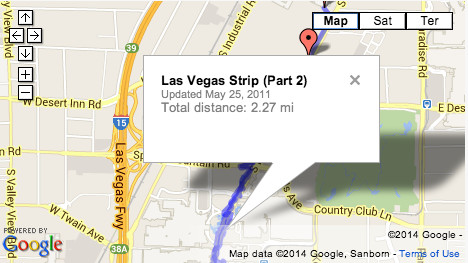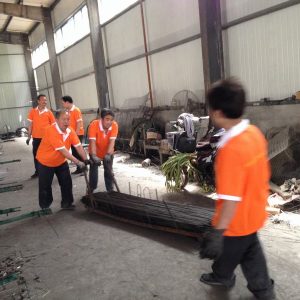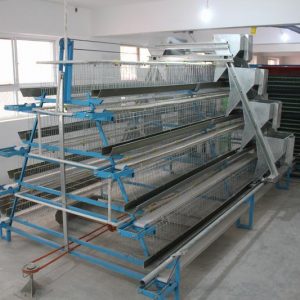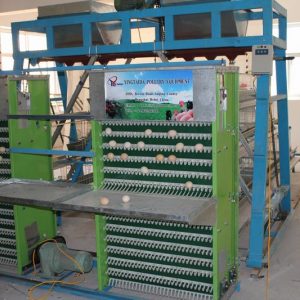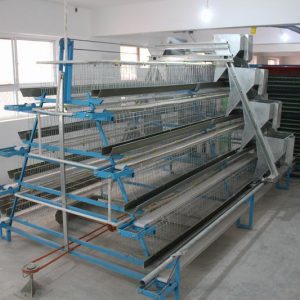
a type poultry cage
a type poultry cage After entering the summer days, high-temperature barbecue patterns have appeared everywhere. Such weather conditions are a great test for chicken farmers. Chicken farmers are also magical, and they have made various efforts to prevent heatstroke in chicken coops. Here, the weather vane of the poultry industry tells you how to raise chickens in the Futian chicken farm in summer?
The first prevention in summer: prevent the birds from being poisoned by ammonia. Chicken manure is the most unbearable in chicken coops. If no measures are taken, chicken manure not only pollutes the environment of the chicken coops, but also can produce harmful gases, which has the most important impact on the growth and egg production of chickens. Excessive ammonia gas stimulates and damages the mucous membrane of the respiratory tract of the chicken. This is also the reason why the incidence of respiratory diseases in chicken houses with heavy ammonia gas is high, and it is difficult to control repeatedly.
Under high temperature conditions, it will accelerate the chemical reaction of chicken manure and generate a large amount of ammonia gas. If coupled with poor ventilation of the chicken house, the ammonia concentration of the chicken house is higher. Therefore, the ammonia concentration of the chicken house in the hot summer is easy to exceed the standard.
How to prevent ammonia gas to avoid ammonia poisoning of chickens?
First: Keep ventilation and cool the chicken house. High temperature and high humidity will accelerate the production of ammonia gas from chicken manure. Therefore, when cooling the chicken house, be careful not to spray water directly on the chicken manure. It is recommended not to splash water on the floor of the chicken house to cool down, you can take a spray to cool down, and strengthen the chicken house ventilation measures to reduce the ammonia concentration of the chicken house.
Second: Clean up chicken manure in time. Depending on the size of the house, it is generally cleaned every two to three days, but it is recommended to clean it once a day. It is important to know that chicken manure is the source of ammonia production. To reduce ammonia production in chicken houses, you should start from the source.
Second prevention in summer: against mosquitoes and flies, when it comes to the prevention and control of mosquitoes and flies, many farmers will definitely pick up a bitter tears. Chicken manure is present in chicken coops every day, and chicken manure is a place where mosquitoes and flies love to treat.
After the chicken manure is cleaned out in time, add the special anti-mosquito drug to the chicken manure, kill the eggs, and pile up the fermentation, then cover the film, which can effectively control the production of mosquitoes and flies. The eggs of mosquitoes and flies are hidden in the feces. Chicken manure is a natural breeding environment. As long as the chicken manure is properly handled, it can reproduce to a large extent, greatly reducing the probability of mosquitoes transmitting diseases.
Third prevention in summer: prevent the breeding of pathogens. In summer, not only mosquitoes are rampant, but chicken diseases also occur frequently. The high temperature and high humidity conditions are suitable for the breeding of pathogens, which can easily cause the chickens to become sick. It is recommended that the chicken house should be disinfected regularly to avoid the intrusion of external viruses as much as possible.
In short, summer is really a big test for chicken farmers. Especially for free-range households, the facilities in the chicken coop are poor. If you don’t pay attention, it is easy to smell bad, and the mosquitoes fly, turning into a large steamer full of chicken manure. High temperature, whether it is for chickens or people, is a severe test. But no matter what, chicken farmers still have to hold on.
